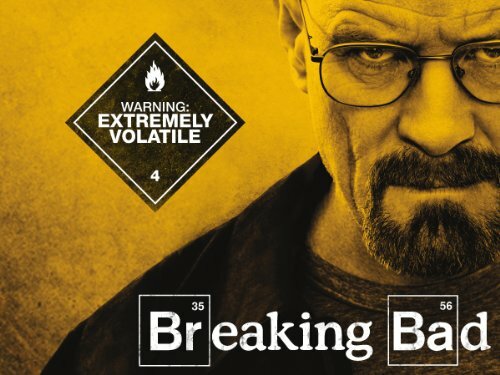No, No, Please Don’t Tell Me – Why Lost Should Keep Its Secrets
by Steve Mainprize

Once upon a time, there was a nice doctor who got stranded on a mysterious island.
After that, things got a bit complicated.
As loopy old Lost gets closer to its conclusion, it faces the thorny problem of how to neatly tie up six seasons of interconnecting characters, events, timelines and realities. To its credit, the show is currently swaggering along the home straight, give every impression of knowing where it’s going, despite a frequently expressed view early on, particularly during its second season, that the writers were making it up as they went along. The question, given the enormous amount of continuity baggage that Lost is dragging towards the finish line, is just how satisfying that conclusion can possibly be.
I’m not going to even start listing the plot questions that still remain to be answered. I did start trying to do that, but every mystery I wrote down reminded me of two more, and I ended up feeling dizzy and had to lie down for a bit. Either you watch the thing and you’re well aware of its capacity for confusing its core audience, or you don’t and anything I tell you here will make you think I’m hallucinating. Quick plot summary: there are mysterious forces at work in the world of Lost, inscrutable factions are manoeuvring towards unknown objectives, and none of the (many) main characters have much of a clue about what the hell’s going on. Furthermore, neither do we, the viewers, and there’s only a limited amount of time remaining in which to resolve it all to our satisfaction.
The task facing the writers is, in fact, two-fold. Firstly, they are expected to explain everything. Then, they have to make sure that they wrap the series up in satisfying manner. To my mind, these are different objectives, and the only one that actually matters is the second one.
The internet’s most extensive resource for Lost fans is the wiki site lostpedia.com. The site has a page dedicated to listing unanswered questions, and at the moment it lists over 170 of them.
Well, first of all, it’s entirely unfeasible that anything like all of these can be answered in the remaining episodes, unless the remaining episodes are going to be filled with lots of clunky exposition. To the writers’ credit, they have largely avoided having to do that so far, and I don’t expect them to change their style at this late stage.
Secondly, even for the big question – what is the nature of the Island? – the answer doesn’t particularly matter. It’s something beyond our knowledge of the physical universe, take your pick from future technology, alien artifacts, magic, quantum physics*, whatever. It doesn’t matter which you choose, or which one the writers hand you. Writers of “genre fiction” (sci-fi, fantasy) have always had the unfair option of being able to pull that sort of stuff out of their backsides.
So, given that the details of the answers are unimportant, why waste time thinking about and delivering those answers? In fact, to hand us some kind of “solution” would actually run counter to the entire ethic of the series.
Obfuscation is the natural order of things in Lost. From the viewpoints of the protagonists, and therefore from our viewpoint, Something Very Weird is going on, but the few characters who appear to know what it is certainly aren’t telling us. The promise of answers to come leads us on and keeps us watching. Some viewers baled out early on, frustrated about this state of affairs, but I think that this is to misunderstand the beauty of the programme.
The point of Lost is not that the fun is in getting the answers, it’s that the fun is in not knowing. The word itself, “Lost”, doesn’t just refer to the characters, physically lost on the island or emotionally lost within their own lives and relationships. It also refers to us, the audience, and our confusion over the events unfolding on the screen.
Once you accept this, realise that the show is yanking your chain, and are prepared to have your chain yanked, there is an awful lot of fun to be had with it.

Frankly, I hope Lost doesn’t try too hard to give us the answers. Most of the important stuff we’ve already figured out, at least to whatever extent that it matters. Meanwhile, the troubling suspicion remains that surely, something, somewhere in the six years of the show has no logical explanation: perhaps a plot thread that never got resolved, or something the writers wrote that contradicted something from earlier that they’d forgotten. You can bet that obsessives everywhere will be trying to pick holes once the final episode has been shown, and I suspect that the fabric of Lost isn’t strong enough to stand hole-picking of the calibre that the entire internet can bring to bear**.
So my wish for the finale of Lost: don’t give us the answers, we don’t need them. By all means resolve the characters’ story arcs, but to remain true to the entire vibe of the show, it needs to leave the major mysteries unanswered. In fact, if you want to go nuts, why not throw us another few mindfucks in the last episode? Sure, there’d be complaints. Probably there’d be tears. But after the dust settled, I think that people who love the programme would realise that it’s better to remember it the way it was throughout its run: not as an unsatisfying explanation, but as a glorious perplexity.
* Quantum physics isn’t actually “beyond our knowledge of the physical universe”, but it might as well be in genre fiction.
** In fact, rather than explain everything, I’d rather they went with the “it was all a dream!” ending. At least that’d be funny.
The final episode of the final season of Lost will be broadcast on May 23, 2010. And then we’ll know. Maybe.





